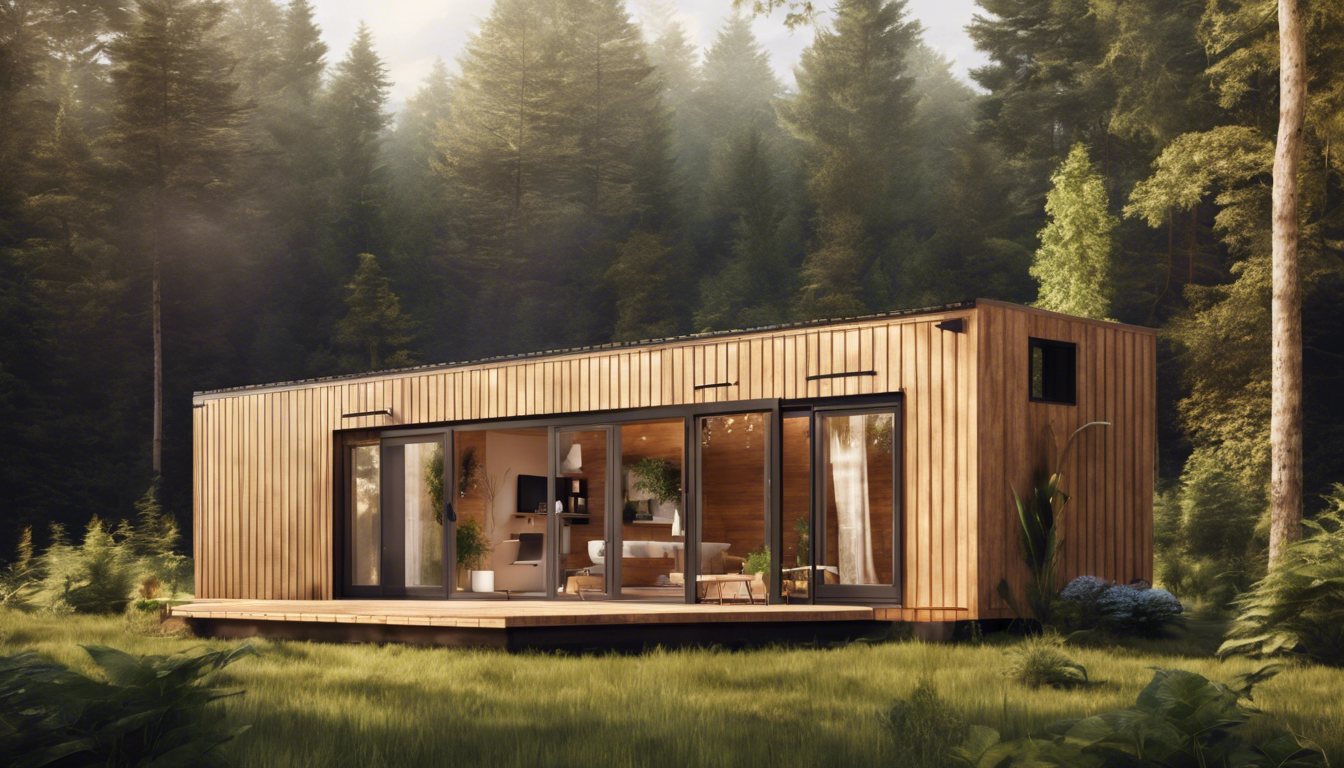Pre-built tiny homes are gaining popularity among those looking for efficient and affordable living solutions.
These compact houses provide a simple yet functional lifestyle.
As more people explore minimalism and sustainability, pre-built tiny homes offer a practical way to embrace these values.
This article will explore the advantages of choosing pre-built tiny homes, including cost savings, environmental benefits, flexibility, and their potential role in the future of housing.
The Most Popular Modular/Tiny Home On Amazon
Key Takeaways
- Pre-built tiny homes offer an affordable housing option for those looking to downsize.
- Choosing a tiny home can significantly reduce your carbon footprint and promote sustainability.
- The compact design of tiny homes allows for greater flexibility and mobility in living arrangements.
- Pre-built tiny homes are often quicker to set up and move into compared to traditional housing.
- The rising trend of tiny living indicates that pre-built tiny homes are becoming a staple in modern housing solutions.
1. Introduction to Pre-Built Tiny Homes
Pre-built tiny homes offer a convenient housing solution that appeals to many.
These structures, often constructed off-site, provide a fast and efficient way to own a home.
Buyers can choose from a variety of designs and layouts to suit their preferences.
Investing in pre-built tiny homes can save time and reduce stress compared to traditional home building.
Additionally, many options emphasize energy efficiency, making them environmentally friendly.
With a growing interest in minimalism and sustainable living, pre-built tiny homes are becoming increasingly popular, offering both affordability and flexibility.
2. Cost-Effectiveness: Saving Money with Pre-Built Tiny Homes
Pre built tiny homes offer significant cost-effectiveness compared to traditional housing options.
Homebuyers can save money on construction costs and reduce expenses associated with maintaining larger properties.
These homes are typically more affordable to purchase, making homeownership accessible to many.
Additionally, pre built tiny homes often come with energy-efficient features, which lead to lower utility bills.
The smaller size means less space to heat or cool, resulting in further savings.
Buyers also benefit from reduced property taxes associated with smaller homes.
Overall, choosing a pre built tiny home provides financial advantages while still offering comfortable living.
‘The greatest step towards a life of simplicity is to learn to let go of things that are not essential.’ – Fumio Sasaki
The Most Popular Modular/Tiny Home On Amazon
3. Environmental Benefits of Choosing Tiny Home Living
Choosing pre built tiny homes offers significant environmental benefits.
First, these homes use fewer materials than traditional houses, which reduces waste and conserves resources.
Second, their smaller size typically leads to lower energy consumption.
Residents often enjoy reduced heating and cooling costs due to the compact design, which helps decrease the carbon footprint.
Additionally, many pre built tiny homes use sustainable materials and eco-friendly technologies, such as solar panels.
This choice not only minimizes environmental impact but also promotes a lifestyle focused on conservation and sustainability.
4. Flexibility and Mobility: Advantages of Pre-Built Tiny Homes
Pre-built tiny homes offer significant flexibility and mobility that traditional housing options cannot match.
These homes are often built in a factory setting, making them easier to transport to different locations.
Homeowners can choose to relocate their tiny homes whenever they desire, allowing for a lifestyle that emphasizes freedom and exploration.
Additionally, pre-built tiny homes often come equipped with essential features and efficient layouts, maximizing space without sacrificing comfort.
This can be an appealing option for those wishing to downsize or simplify their lives, as they can enjoy a minimalistic lifestyle with all the conveniences of a standard home.
5. The Future of Living: Why Pre-Built Tiny Homes are Here to Stay
Pre built tiny homes offer a practical and sustainable living solution for many people.
As urban areas grow and housing prices rise, these homes present an affordable alternative.
They are quick to assemble, reducing the need for extensive construction time and minimizing disruption.
Many buyers appreciate the eco-friendly design of pre built tiny homes, which often require fewer resources and less energy.
The trend shows that more individuals are prioritizing minimalism and efficiency, leading to a growing market for these homes.
Additionally, with the increasing desire for flexibility, many buyers see value in portable options that can adapt to their lifestyle changes.
Pre built tiny homes are not just a passing trend; they represent a shift towards smarter living choices.
Frequently Asked Questions
What are pre-built tiny homes?
Pre-built tiny homes are compact, fully constructed residences that are built off-site and then transported to the desired location.
They offer a smaller living space designed to maximize efficiency and sustainability.
How much can I save by choosing a pre-built tiny home?
Pre-built tiny homes can significantly reduce housing costs, often costing far less than traditional homes.
Savings come from lower construction costs, reduced utility bills, and less maintenance, making them a cost-effective housing option.
What environmental benefits do pre-built tiny homes offer?
Tiny homes generally require fewer materials to build, which reduces waste.
Their smaller footprint also means they have a lower energy consumption rate, promoting a more sustainable lifestyle and minimizing their carbon footprint.
Can I move my pre-built tiny home if I want to relocate?
Yes!
One of the significant advantages of pre-built tiny homes is their mobility.
Unlike traditional structures, many tiny homes are designed to be portable, allowing homeowners the flexibility to relocate as needed.
Are pre-built tiny homes a long-term housing solution?
Absolutely!
Pre-built tiny homes are increasingly seen as a viable long-term housing option.
They provide a sustainable alternative for those looking to downsize or adopt a minimalist lifestyle, and their design flexibility supports permanent living.





Leave a Reply